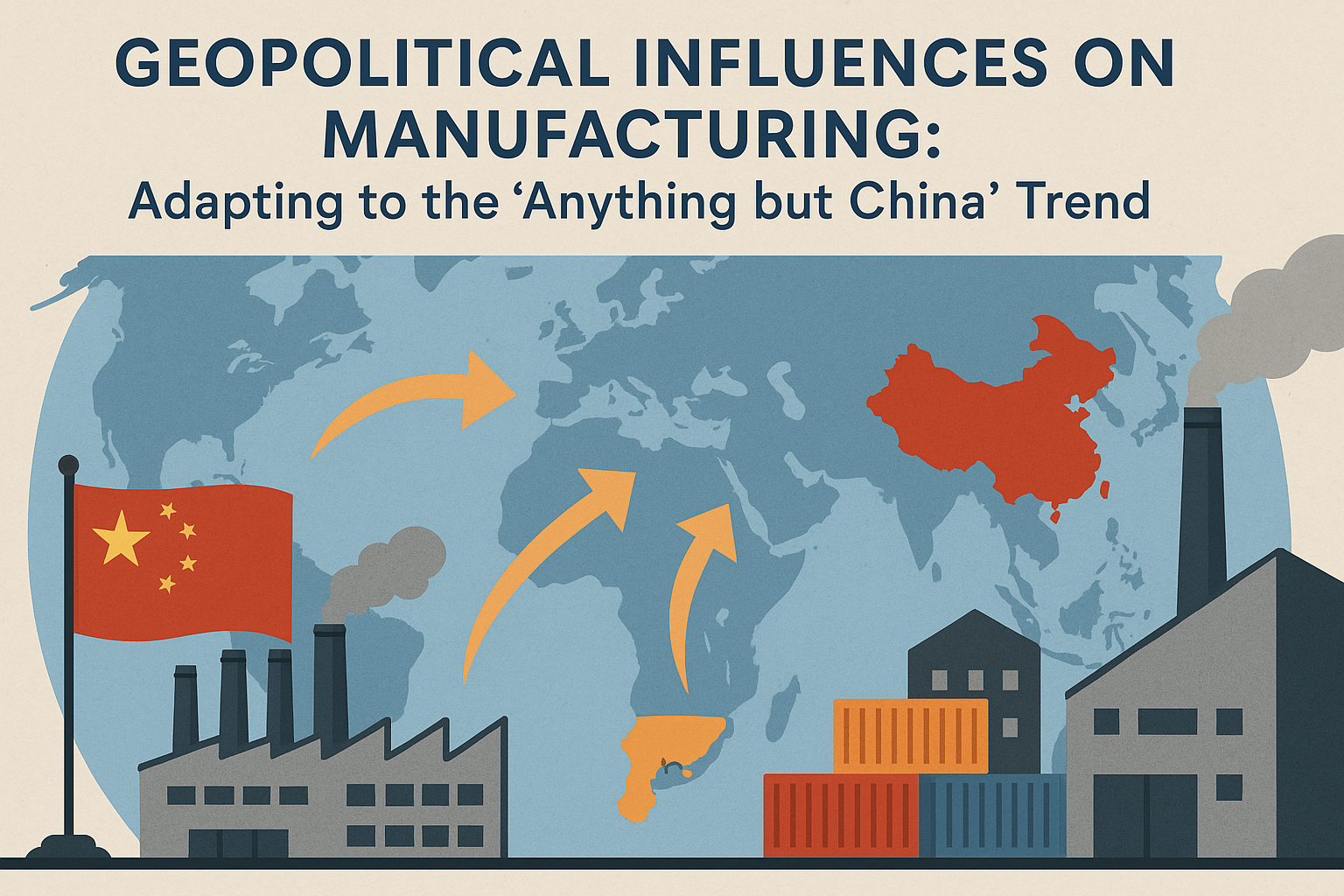Rewriting the supply chain story: The PR strategy behind ‘Anything but China’

Geopolitical shifts are shaking up manufacturing, and it’s worth paying attention. Companies that once relied heavily on China are rethinking their supply chains, moving production to new locations in a strategy dubbed “Anything but China” (ABC). The ABC strategy as flagged in a recent Business Standard article is driven by fears of tariffs, trade curbs, the need for diversification or even a Trump-led policy reboot in 2025.
For PR professionals, this shift isn’t just about logistics—it’s about narrative control. Manufacturing transitions impact employees, investors, customers, and governments, making strategic communication essential. Get it right, and a company reinforces its reputation for resilience and innovation. Get it wrong, and the conversation can spiral into speculation and uncertainty.
Why are companies moving away from China?
Manufacturers across industries—from semiconductors to consumer electronics—are readjusting their supply chains. The U.S.-China trade war, rising labour costs, and geopolitical risks have pushed companies to explore alternatives like Vietnam, India, and Mexico.
Apple is shifting production to Vietnam, where Samsung has already established a major electronics hub (Thailand Business News). Malaysia is carving out a semiconductor niche, while Mexico’s proximity to the U.S. makes it a logistical advantage. But relocating isn’t cheap—higher labour costs and the need for new infrastructure present challenges. Nvidia has committed to U.S. manufacturing to reduce reliance on Asia (The Guardian), and brands like Breville are diversifying to mitigate trade barriers (The Australian). The 2025 Rhodium Group report highlights China’s slipping dominance, with its share of U.S. imports dropping 5% by 2022 since the trade war began.
Where PR fits into manufacturing transitions
Moving production is more than just an operational challenge—it’s a communications challenge. A poorly handled shift can lead to workforce anxiety, investor doubts, customer concerns, and media scrutiny. Here’s where PR plays a critical role:
- Shape the narrative
Relocating production is a strategic move. PR can shape this story, framing expansion into Malaysia or Vietnam as forward-thinking, not reactive. The messaging should align with corporate strategy, whether emphasising resilience, cost-efficiency, or innovation.
- Build credibility in new markets
Emerging manufacturing hubs don’t have China’s decades-long track record. PR can bridge that gap with data-driven storytelling—highlighting Malaysia’s semiconductor rise or Vietnam’s export growth to reassure cautious customers and investors about quality and stability.
- Engage stakeholders proactively
These shifts impact real people—employees, partners, and local communities. Transparent internal communication prevents uncertainty, while external messaging emphasises job creation, sustainability gains, and long-term benefits.
- Manage public perception
Media coverage shapes how the transition is received. PR can drive positive coverage through industry press, executive interviews, and clear messaging, reinforcing business continuity over reactive fixes.
- Strengthen local and government ties
Moving into new regions requires trust-building. PR could highlight the company’s commitment to local economies through infrastructure investment, job creation, and corporate responsibility efforts to build strong community and government relations ensuring a smooth transition with minimal friction.
What’s next? The future of supply chain communications
The Rhodium report underscores that diversifying isn’t optional—it’s survival in a fractured global economy. With supply chains becoming more geopolitically sensitive, PR will continue to play a crucial role in reputation management and strategic storytelling. The companies that succeed in this evolving landscape won’t just be the ones that move their factories; they will be the ones that manage the messaging as well as the manufacturing.
Click here to find out more about BCM Manufacturing PR Agency